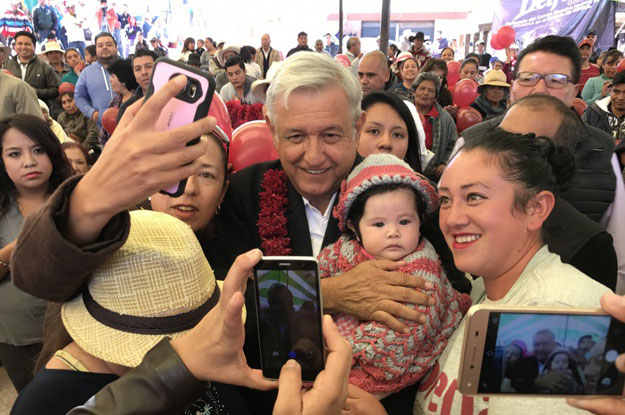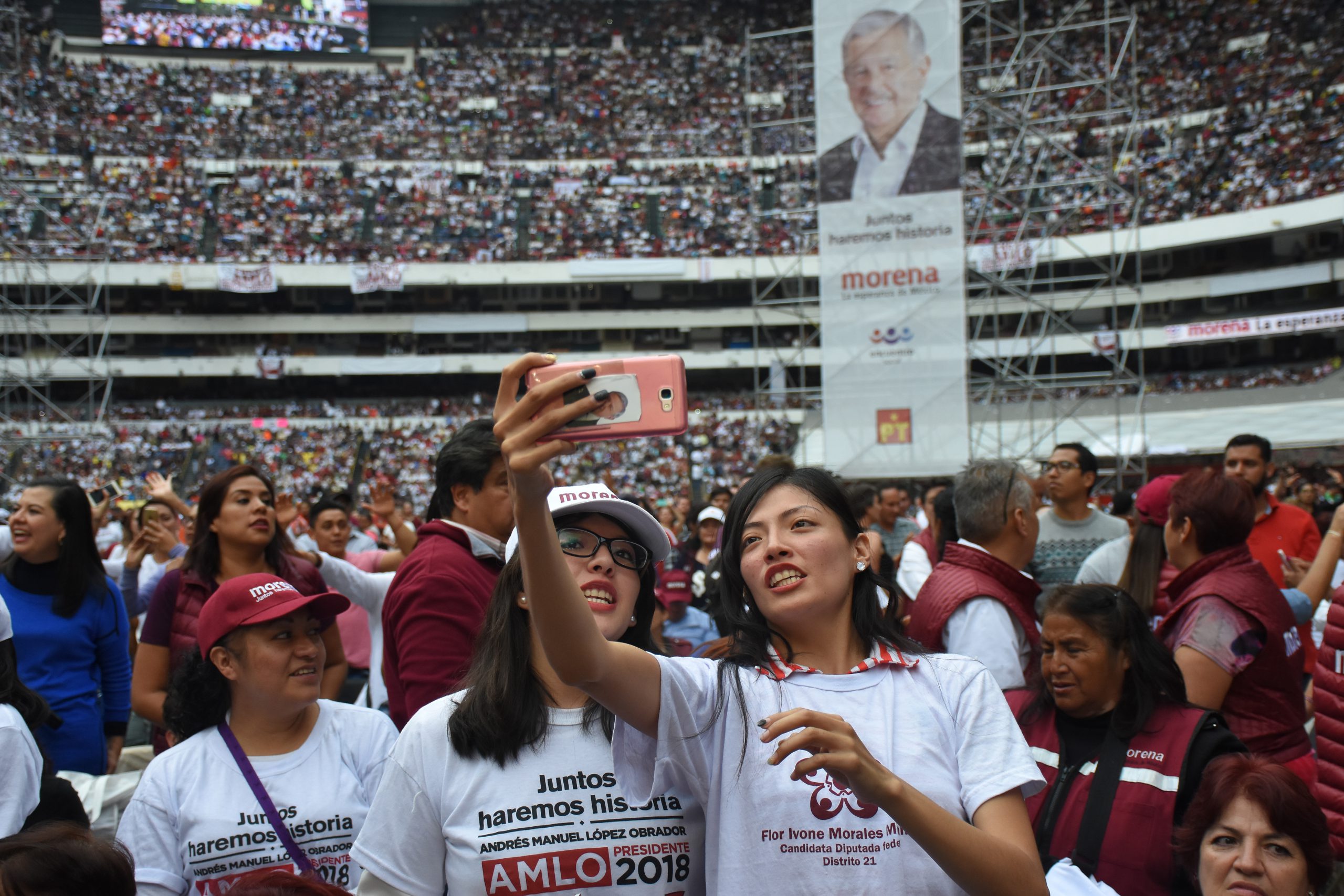This story has been updated
As the politician best positioned to ride a wave of nationalist, anti-Trump sentiment to Mexico’s presidency in 2018, Andrés Manuel López Obrador appears to be embracing an unexpected strategy: moderation.
López Obrador, widely known as AMLO, has earned his reputation as one of Mexico’s most polarizing national figures. When he narrowly lost the presidential election in 2006, he had himself sworn in as “Mexico’s legitimate president” on the streets of the capital; his supporters occupied the city’s main square for months.
But in the days since Donald Trump’s election as the U.S.’ president on Nov. 8, the 63-year-old López Obrador has presented himself as a more modest figure, a sign he recognizes the need to allay fears on the part of Mexico’s elites and moderate voters that his presidency could disrupt the status quo and undo reforms initiated by the government of President Enrique Peña Nieto.
“He’s saying that the change he’s trying to represent isn’t an abrupt change or a rupture, but rather a moderate, stable change,” said Carlos Bravo Regidor, a professor at Mexico City’s Center for Research and Teaching in Economics.
So far, that has included largely resisting opportunities to whip up outrage over Trump’s policy agenda. On the night the U.S. president was elected, López Obrador responded with a video posted to Facebook in which he told Mexicans not to fear the results, coming across more as a reassuring grandfather than a populist ready for battle. In the weeks since, he has focused his energies on presenting policy proposals and short videos on domestic matters ranging from gas prices to wireless internet access. In late January, he named Esteban Moctezuma, an establishment figure who served as a cabinet secretary to former President Ernesto Zedillo, to his campaign team.
This more congenial approach may not last, especially given an upcoming visit to Los Angeles on Sunday where López Obrador will speak to a group of Mexican immigrants and is expected to address Trump’s past statements about Mexicans and his resolve to extend the wall on the U.S.’ southern border. But after second place finishes in the 2006 and 2012 elections, López Obrador seems to have come to grips with the fact that he will need to be more cautious if he wants the third time to be a charm.
“He’s learned that he needs a more conciliatory and sophisticated strategy,” Bravo told AQ.
Most polls show López Obrador as a frontrunner in the race for the presidency – and he knows it. The candidate and leader of the Movement for National Regeneration party (Morena) is in full campaign mode, promoting a new book and stumping heavily for party candidates ahead of state elections in June. But while polls give him a widening advantage, there’s still 17 months to go before the election – and López Obrador has a history of squandering leads. In order to capitalize on his current momentum, analysts say it is essential that he reach out to moderate voters.
“He has his ideological base, but it’s not enough for him to win the election,” said Shannon O’Neil, senior fellow for Latin America studies and director of the Civil Society, Markets and Democracy Program at the Council on Foreign Relations. “He is saying to voters ‘I’m change, but you can trust me. I’ll defend your interests, but I’m not scary.’”
To be sure, López Obrador hasn’t transformed himself overnight. He continues to vehemently criticize the government and his opponents on social media, and make promises of economic turnaround if his candidates are elected this year. But he has also offered Peña Nieto support in his dealings with the Trump administration and in general has focused on conveying a more positive message.
“There have been many moments where (López Obrador) has highlighted his leftist populism, but since Trump was elected he has taken on more of a thoughtful, centrist tone,” O’Neil told AQ.
López Obrador has also mostly left the confrontation with Trump for Peña Nieto to deal with, even as other prominent national figures have more forcefully inserted themselves in the fight (former President Vicente Fox has taken to expletive-laced tweets to make his opinions of the new U.S. administration known).
“The Mexican people don’t want a president who fights with Trump, they don’t want a feud,” said Bravo. “They want tenacity. I think López Obrador is trying to find that balance.”
In seeking that balance, López Obrador has kept his focus on domestic issues such as corruption and the economy. He has focused particular attention on critiquing Peña Nieto’s energy policies, hoping to appeal to voters more concerned with being able to fill up their gas tanks than with what’s going on in Washington.
If he plays it right, López Obrador’s upcoming trip the the U.S. (during which he will visit Chicago, Phoenix and other cities in addition to Los Angeles) could bolster his support among Mexican immigrants in the U.S., who can vote in Mexican elections; that might further set him up as the candidate to beat. But if recent elections elsewhere are any indication, AMLO should continue his outreach efforts – and not rest his laurels on encouraging polls.
This story has been updated to clarify López Obrador’s position in current polls.
—
O’Boyle is an editor for AQ









